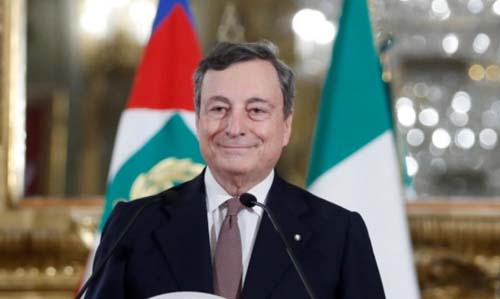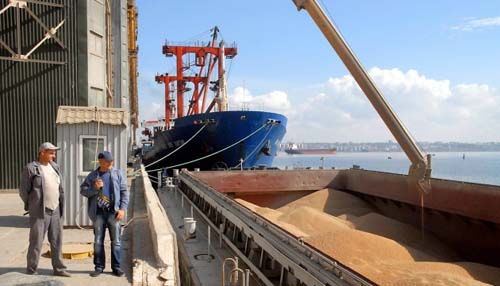Italy at the centre of ongoing diplomatic efforts to unblock Ukraine’s grain exports

Rome: Italy’s Prime Minister Mario Draghi has been at the centre of ongoing diplomatic efforts to unblock Ukraine’s grain exports in an effort to help poorer countries deal with the effects of a global food crisis.
During a visit to Kyiv with his French and German counterparts, Draghi noted that only a UN resolution could guarantee the creation of safe corridors.
Many political leaders are aware that it’s a race against time. Two weeks at least are needed to de-mine Ukrainian ports, the Italian PM explained.
Never before has food security been so much at risk as it has today as a result of the ongoing conflict in Ukraine.

The G7 meeting that will be held in Germany at the end of the month could prove vital for world leaders to find a solution.
Italy wants to become an active player as Europe is at the forefront of the crisis.
Both Draghi’s visit to Ukraine and the recent meeting organised by the country’s foreign minister Luigi Di Maio to assess the impact of the war on global food security show that.
Clearly, Mario Draghi’s political leverage and international standing have contributed to Rome’s increased exposure on the world stage. But it’s not just that.
The online summit that was organised only a few days ago by the Italian government with the support of the United Nations’ Food and Agriculture Organisation (FAO) has shown Rome’s centrality in the Mediterranean area.
By being the main promoter of what Di Maio has described as a dialogue with the countries that have been more affected by the food crisis — Italy has made a clear statement.
Some 24 African and European countries as well as representatives from several international organisations attended the meeting.
“Blocking grain exports means holding hostage and sentencing to death millions of children, women, and men” was Di Maio’s strongest line. It’s a blunt and dire truth supported by facts.
Fifty countries around the world import 30% of their wheat supplies from Ukraine and Russia, according to the minister, who also highlighted that the majority of the wheat sold in Africa comes from those two countries.
The timing could not be worse as the United Nations recently warned that an estimated 13 million people were facing hunger in the horn of Africa region.
“Unless we act immediately the food crisis might generate worse consequences,” the Italian FM said, warning that it risks destabilising states that are already fragile and triggering new wars and migration flows.
But Di Maio said the summit also offered the opportunity to discuss possible solutions that would require follow-up discussions such as the introduction of financial mechanisms to ease the impact of increased prices on food commodities.





